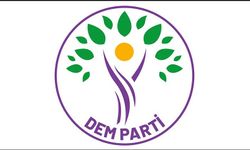AMED TIMES - Socio-Political Field Research Center Shares the Results of Its Survey on "The Level of Use of Mother Tongues Other Than Turkish in Turkey and Demands and Tendencies Regarding Mother Tongues"
The Socio-Political Field Research Center conducted a survey titled "The Level of Use of Mother Tongues Other Than Turkish in Turkey and Demands and Tendencies Regarding Mother Tongues" between May 2-9, 2024, in 16 cities, and shared the results.
The survey, conducted with 1276 people, included the following cities: Diyarbakır, Istanbul, Ankara, Izmir, Kocaeli, Antalya, Antep, Çanakkale, Mersin, Elazig, Mardin, Urfa, Van, Batman, Sirnak, and Agri.

Native languages and dialects of the survey participants
As part of the study, the research group was asked about their mother tongues and dialects. According to the responses, 74% of the respondents identified their mother tongue as Kurmanji, 11.9% as Kirmanckî/Zazakî and 5.3% as both Kurmanji and Kirmanckî/Zazakî. It was also found that a total of 8.8% of the study group belonged to other minority language groups, including Syriac, Armenian, Arabic, Georgian, Circassian, Laz, Greek and Ossetian.
Which languages/dialects are spoken in your household (%)
According to the data of the study, the percentage of those who speak only Turkish at home/within the family even though their mother tongue is not Turkish is 18.8%, while the total percentage of those who speak both Turkish and their mother tongue at home is 46%. According to this data, 64.8% of the study group use Turkish at home.
How often do you speak your mother tongue at home?

In addition, 42.2% of respondents said that they always speak their mother tongue at home/within the family, 17.7% said that they "rarely" speak it and 9.1% said that they "never" speak it. According to the data, the use of the mother tongue at home is widespread among less than half of the participants. The report states that when comparing the genders, 46.3% of male respondents and 35.9% of female respondents said that they always speak their native language at home. The low rate of native language use among women is striking.

The research group was also asked whether they had been discriminated against because of their mother tongue.
According to the answers:
- 77.7% of respondents reported experiencing discrimination in public authorities: 11.6% reported experiencing it "some of the time"
- 62.1% of respondents reported experiencing discrimination in healthcare facilities: 23.5% reported experiencing it "to some extent"
- 75.9% of respondents reported experiencing discrimination in educational institutions: 13% reported experiencing it "to some extent"
- 40.4% of respondents reported experiencing discrimination on public transport: 28.5% reported experiencing it "some of the time"
- 61.1% of respondents reported experiencing discrimination at music/film screenings: 19.4% reported experiencing it "some of the time"
- 47.5% of respondents said they had experienced discrimination in clothing: 19.6% said they had experienced it "some of the time"
- 48.6% of respondents reported experiencing discrimination in religious rituals and holidays: 20.5% reported experiencing it "some of the time"
- 31.2% of respondents stated that they were discriminated against in their social environment: 31.3% stated that they were "partly" discriminated against
- 46.6% of respondents said they had experienced discrimination on social media: 26.6% said they had experienced it "some of the time"
- 48.4% of respondents reported being discriminated against in the workplace: 22.7% reported being discriminated against "to some extent"
- 28.7% of respondents reported experiencing discrimination in their place of residence: 27% reported experiencing it "to some extent"







